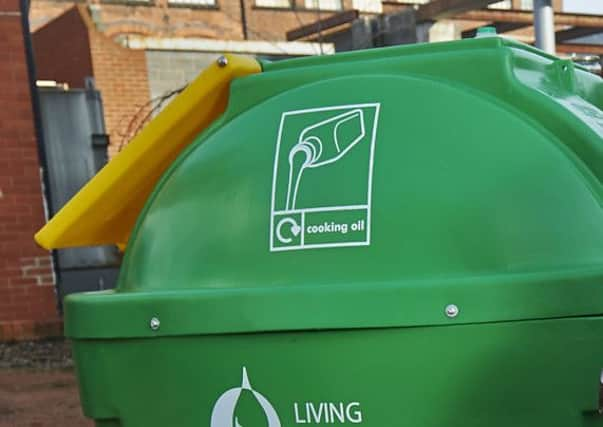Why pour money down the drain?


A YouGov poll found that 48 per cent of adults in the borough hold this view. However, it is the homeowner who is responsible. Yet 27% of consumers admit to disposing of their waste cooking oil down the sink – an action recognised by 45% as the main cause of costly drain blockages within their property’s boundary.
The average household throws away a teacup of waste cooking oil every month when this valuable resource could be recycled into clean electricity. Encouragingly, 57% of people would be likely to take their waste cooking oil to the household waste recycling centre if they knew where it was, according to the poll.
Advertisement
Hide AdAdvertisement
Hide AdIan Collins, managing director of Living Fuels which operates 500 waste cooking oil collection tanks, said: “Around 80% of the UK population is within a 15-minute drive of a waste cooking oil recycling site, among the best coverage in world. The bad news is that the hard core of 22% of adults in Carrick are still putting waste cooking oil down the drain – it hasn’t budged. The good news is some habits have changed since we did our last poll in 2011. For instance, we’re seeing more waste cooking oil going into the food waste and black bins – neither ideal but better than pouring it down the drain.”
The waste cooking oil Living Fuels collects goes into combined heat and power.
Carrickfergus Council’s Household Recycling Centre at Sullatober has provision for recycling cooking oil.